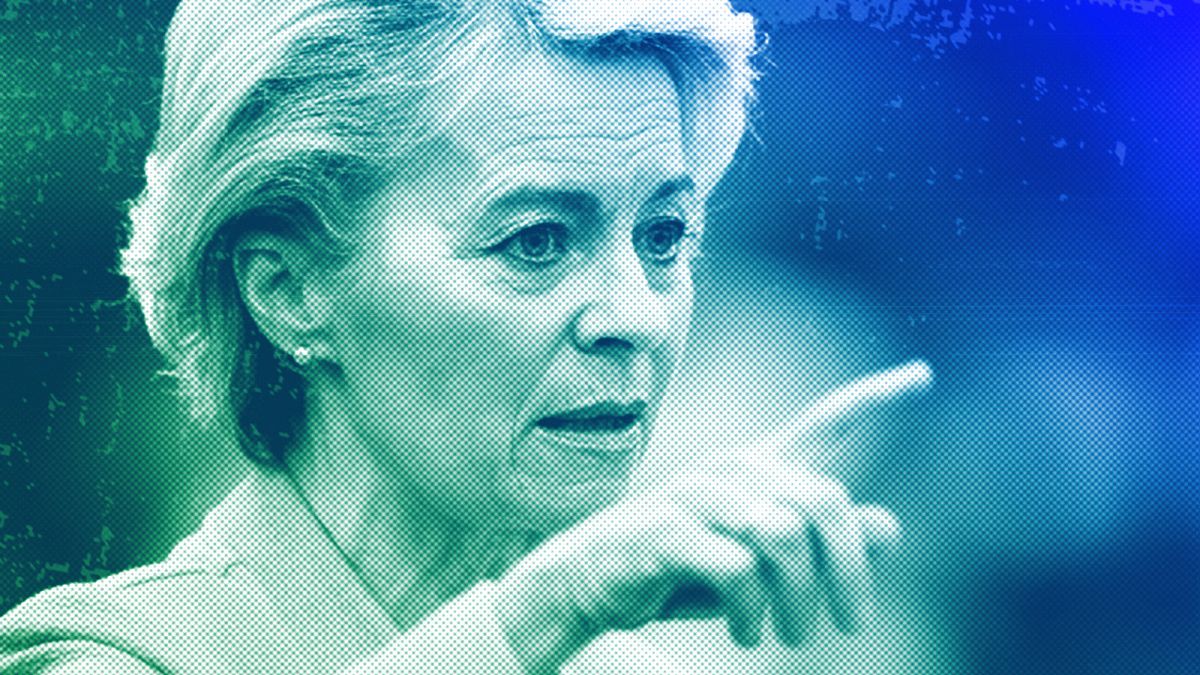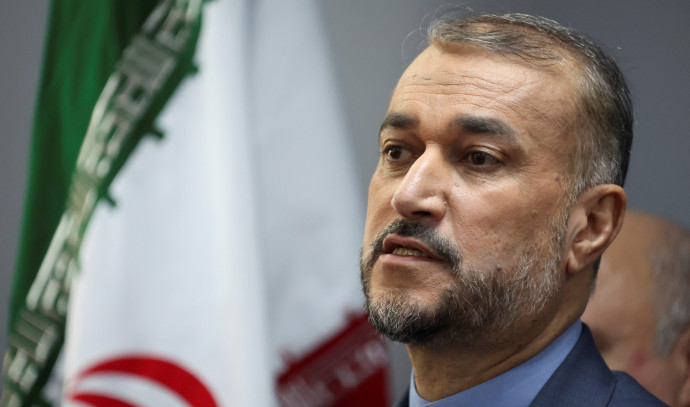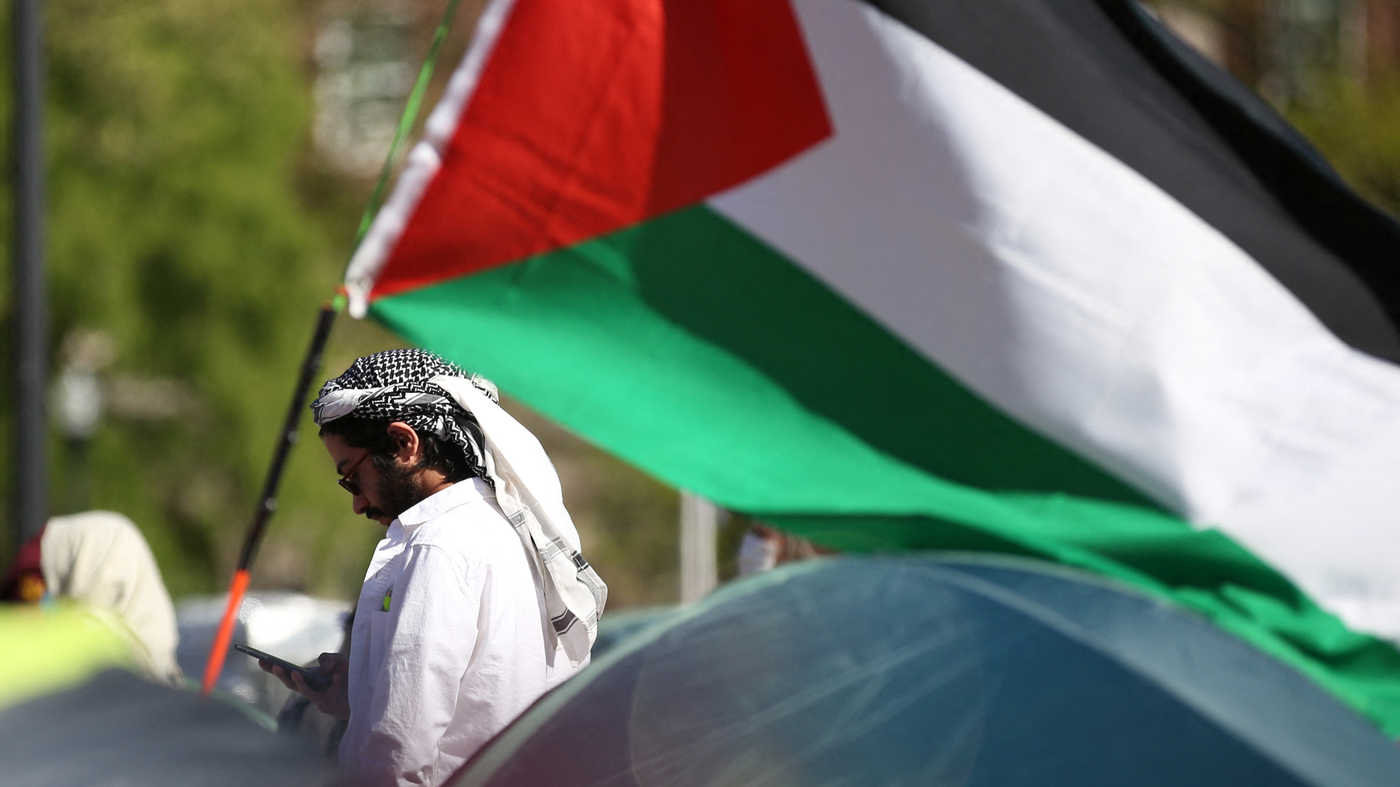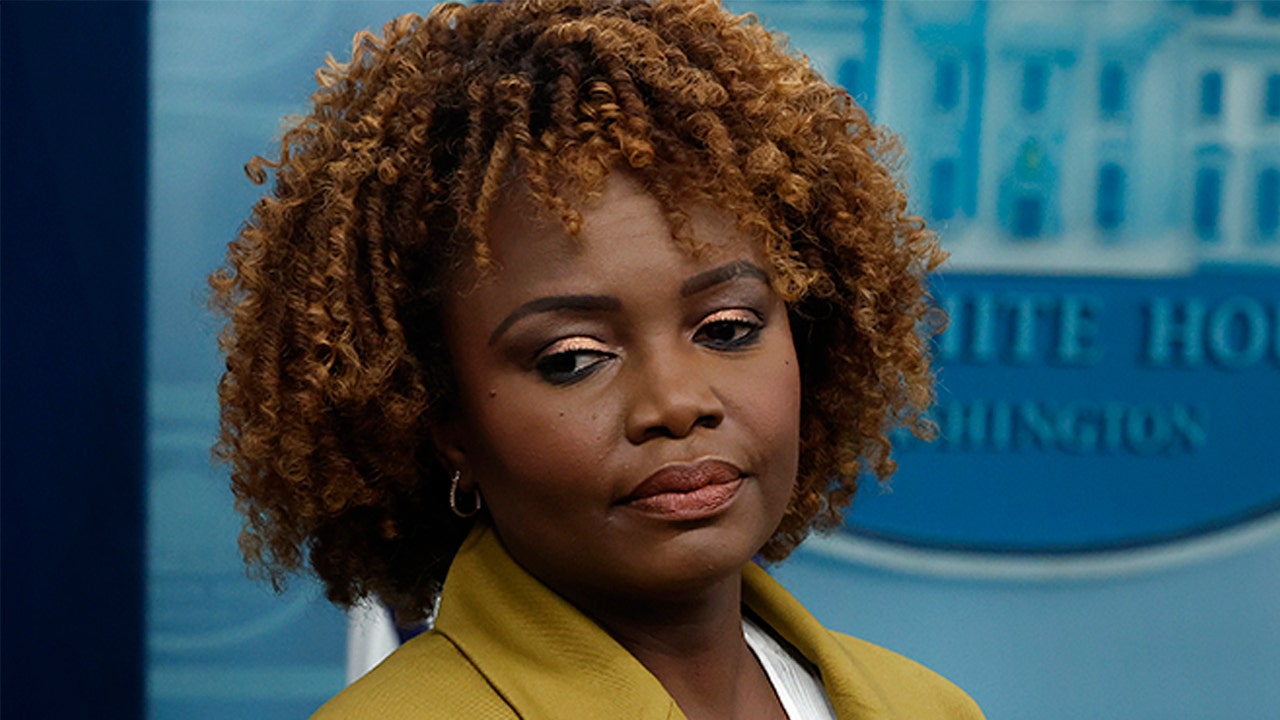World
EU migration reform faces tight vote as party divisions deepen
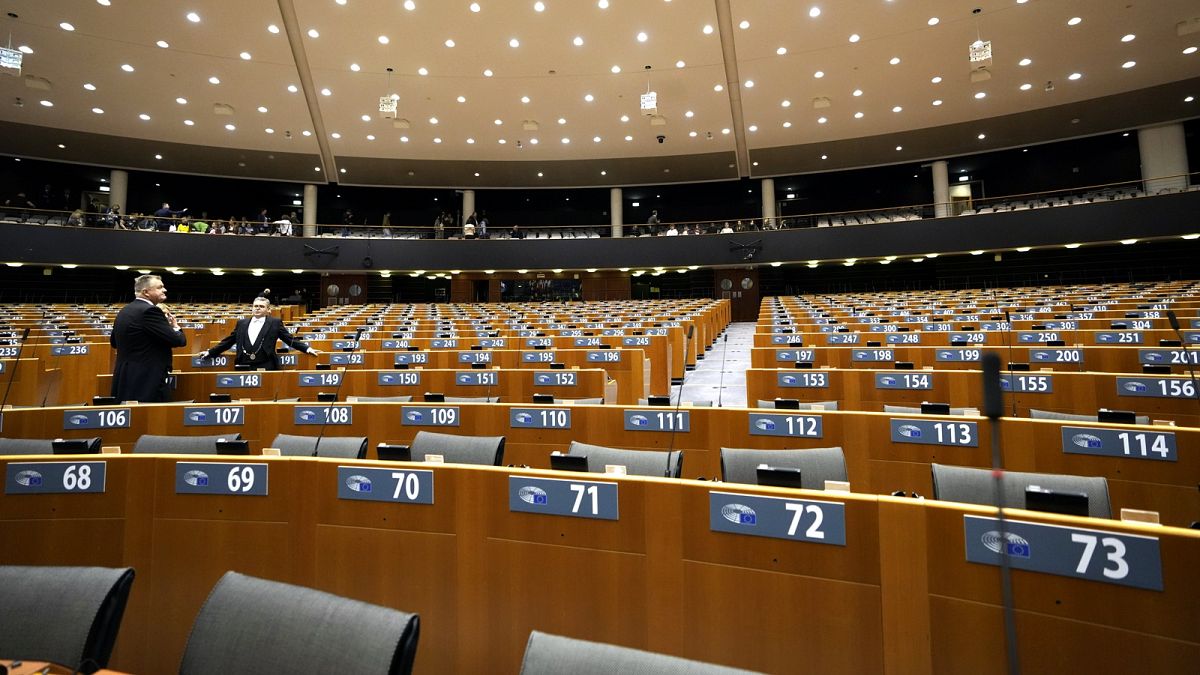
The European Union’s make-or-break attempt to reform its migration and asylum policy faces a tight vote in the Parlament, as party divisions deepen.
The vote is scheduled to take place on Wednesday afternoon in a plenary session that will see MEPs go through a list of complex, interlinked pieces of legislation.
All eyes will be on the five laws that make up the so-called New Pact on Migration and Asylum, the comprehensive overhaul that seeks to turn the page on almost 10 years of go-it-alone reactions and instead establish common and predictable rules to manage the reception and relocation of asylum seekers.
First presented in September 2020, the New Pact has gone through many ups and downs, including periods of impasse that made it seem the legislation would never reach the finish line. Things changed last year as the issue returned to the top of the agenda, leading to a provisional agreement in December between the Parliament and the Council, despite their notable differences.
This breakthrough compromise still needs the final green light from each institution before its enactment into law. Time, however, is running short: the upcoming elections to the Parliament mean April is the last chance for MEPs to endorse the New Pact.
Given the high stakes at play, Wednesday’s vote was initially expected to go smoothly, with legislators from across the political spectrum coming together to support the reform, which is one of the biggest – if not the biggest – political files of this mandate.
But in a briefing with journalists on Tuesday, the rapporteurs in charge of the five laws toned down their optimism and acknowledged the gaps between and within parties.
“No one can know what will be the outcome of the vote,” said Tomas Tobé, from the centre-right European People’s Party (EPP).
“My work is constantly now, hour by hour, convincing colleagues that the absolute best way to help support a European migration policy is to be loyal to the whole migration pact,” he went on. “I understand that it is very easy to find your own populist view, perhaps, on parts of the pact that you might not like.”
Speaking by his side, Birgit Sippel, from the Socialists & Democrats (S&D), said the arguments in favour and against the reform were “totally different” and might be influenced by electioneering rather than policy considerations.
“Some think, like we heard, it’s not good enough, and others think it’s not bad enough in how we deal with migrants,” Sippel told journalists. “Maybe some are thinking about elections and what message they are sending to their national electorate.”
The opposition to the New Pact comes from some familiar corners, such as the lawmakers from Hungary’s Fidesz, who are non-attached, and the far-right Identity and Democracy (ID) group, which encompasses Italy’s Lega, France’s National Rally and Germany’s Alternative für Deutschland (AfD).
But resistance is also emerging from the inside of mainstream forces. The 16 Italian members of the S&D are determined to vote down the New Pact, according to Brando Benifei, who leads the delegation.
“There are those who legitimately think that this compromise is better than no compromise, but for us, as Italians in the PD (Partito Democratico), it is really too little,” Benifei told Euronews.
Benifei attacked the provisional deal struck with the Council, saying it would transform Italy into an “open-air” reception centre and push migrants to “third countries.”
“For us, human rights and European solidarity are fundamental. We do not endorse an agreement that leaves Italy too alone and is not sufficiently solid on the rights of the most fragile people,” he added.
Another Italian delegation, the populist Five Star Movement (M5S), which is non-attached, is equally opposed to the New Pact, calling it “useless for Italy” and “damaging for the rights of migrants who are sacrificed on the alter of demagogy.”
Both PD and M5S are in opposition to Prime Minister Giorgia Meloni, whose party, Fratelli d’Italia (FdI), was originally thought to be firmly in favour of the reform, which features a system of “mandatory solidarity” to help out frontline nations. However, a spokesperson said Fratelli d’Italia “has not decided yet and will consider each file in itself.”
In the Parliament, FdI sits with the hard-right European Conservatives and Reformists (ECR), currently dominated by the Polish delegation of Law and Justice (PiS), which is staunchly against the reform.
Further resistance comes from the opposite side of the room: the Left (37 MEPs) and the Greens (72 MEPs). Both argue the stringent provisions pushed by member states will degrade the quality of the asylum process and fuel violations of fundamental rights.
“The Pact will entrench existing problems by disproportionately focusing on deterrence, including through the widespread detention of people and children, while reducing their rights. It will shift ever more responsibility to third countries and greater financial resources to autocratic governments and warlords,” Philippe Lamberts, co-chair of the Greens, said in a statement to Euronews.
“It’s clear that the current political class is desperate to claim that they have solved the issue of migration, regardless of the realities on the ground.”
Meanwhile, the EPP, the largest formation in the hemicycle, will hold a meeting on Wednesday morning to fortify its position and discuss the latest developments.
All in all, the New Pact needs a simple majority in the 705-member hemicycle to go through, a threshold that depends on how many MEPs show up to vote.
Although the five laws will be voted on separately, they are treated as one indivisible package, meaning the collapse of one could easily trigger a domino effect.
It’s extremely unlikely the Council will move forward with an incomplete set of rules: throughout the arduous negotiations, co-legislators committed to maintaining the “nothing is agreed until everything is agreed” motto until the very end.
“If one of the pillars of this system falls, then the whole system would be not on its two feet, on its right balance. It should be a balanced approach. And that (requires) adopting all of the regulations,” Juan Fernando López Aguilar, another rapporteur, said on Tuesday.
“Should any one of the regulations fail, that would be very detrimental.”
Nevertheless, the Parliament still has one more plenary session scheduled in late April, where the New Pact could be put to a new vote.

World
American Idol Remembers Mandisa: Watch Danny Gokey, Melinda Doolittle and Colton Dixon’s Emotional Tribute

ad
World
A Colombian army helicopter has crashed in a rural area of the country's north, killing 9 soldiers

An army helicopter carrying supplies to troops crashed in a rural area in northern Colombia on Monday, killing nine soldiers on board, the country’s armed forces said.
In a statement, the Colombian military said the helicopter was taking the supplies to the municipality of Santa Rosa del Sur, an area that has recently experienced fighting between the National Liberation Army guerrilla group and the drug trafficking group known as the Gulf Clan.
TENS OF THOUSANDS OF COLOMBIANS PROTEST AGAINST LEFTIST PRESIDENT’S AGENDA
The military statement described the helicopter crash as an accident.
Nine members of Colombia’s military lost their lives when their helicopter crashed in a rural area of northern Colombia. (Photo by LUIS ROBAYO/AFP via Getty Images)
“I regret the death of the nine passengers on board the army’s helicopter” Colombian president Gustavo Petro wrote on X on Monday. “It was supplying troops…that were conducting operations against the Gulf Clan.”
The military said the helicopter crashed around 1:50 pm local time. It was an MI-17 Russian-built chopper that is often used to carry troops and supplies.
Two officers were among the victims of the crash, which also included two sergeants and three privates. None of the passengers on the helicopter survived.
World
Strack-Zimmermann blasts von der Leyen's defence policy

Marie-Agnes Strack-Zimmermann, one of the lead candidates in the European elections, has issued a blistering verdict of Ursula von der Leyen’s first term in office.
Strack-Zimmermann, who hails from the Alliance of Liberals and Democrats for Europe (ALDE), is part of a three-candidate team representing the liberal forces in the bloc-wide poll between 6 and 9 June. Currently a member of the Bundestag, where she chairs the Defence Committee, she is vying for a seat in the European Parliament.
In a wide-ranging interview with Euronews, the contender denounced the policies of Ursula von der Leyen, the sitting president of the European Commission, in the fields of defence, economy and fundamental rights. Von der Leyen is running for a second mandate and is widely considered the frontrunner.
“I’m absolutely disappointed,” Strack-Zimmermann said on Monday, speaking in Maastricht hours before a debate with all lead candidates.
The liberal assailed the incumbent for taking too long to put defence at the very top of the EU agenda, only doing so, she said, after Russian troops broke through the borders of Ukraine and unleashed the largest armed conflict in the continent since World War II.
The wait, she added, was particularly striking considering von der Leyen had previously served as defence minister under the government of Chancellor Angela Merkel.
“I have no idea why she didn’t talk about military security when she started to be the president of the Commission because she knows the topic, she has an idea of what happened,” she said, referring to the 2014 annexation of Crimea.
“I was surprised that didn’t say: ‘Come on, we have to do more in Europe,’ because she has the experience.”
When Russia’s invasion began in February 2022, von der Leyen’s executive was still dealing with the shockwaves sent by the COVID-19 pandemic and the roll-out of the recovery fund, built up by record-breaking amounts of joint borrowing and beefed up with stringent spending conditions to accelerate the green and digital transitions.
But in Strack-Zimmermann’s view, this does not cut it as an excuse for procrastination.
“I know the pandemic situation was terrible for everybody. But even then, you could see what (was happening) in Russia. And it was not this or that, it was both. I think if you are the head of the Commission, there is not one (single) topic,” she told Euronews.
“It’s not a very sexy topic talking about weapons, talking about war. It sounds nicer if you are talking about the Green Deal, it’s a softer topic.”
The failure to provide 1 million rounds of artillery shells by March 2024, as the bloc famously promised to Kyiv, underlines the overall fiasco, she added. “It’s a question of time. It’s a question (of) if you say we will deliver it, we have to do it.”
On the economic front, the contender warned environmental policies and excessive bureaucracy put a damper on growth, scared entrepreneurs away and killed “every moment to have ideas to stay in Europe as a company.”
Regarding the protection of fundamental rights, Strack-Zimmermann said it was “unbelievable” that the Commission had unfrozen €10.2 billion in cohesion funds for Hungary one day before a crucial summit that Viktor Orbán had threatened to blow up.
Brussels argued the release was inevitable after Budapest approved a reform to address long-standing concerns about judicial independence. But the overhaul was deemed insufficient by the European Parliament, which filed a lawsuit against the Commission.
“Everybody was very irritated,” Strack-Zimmermann said. “She’s responsible for it. And you could see that the Parliament is not amused about this situation.”
Despite her harsh assessment, the liberal admitted that being a Commission president was a “hard job.”
This interview is part of an ongoing series with all the Spitzenkandidaten. The full interview with Strack-Zimmermann will air on Euronews over the weekend.
-

 World1 week ago
World1 week agoShipping firms plead for UN help amid escalating Middle East conflict
-

 Politics1 week ago
Politics1 week agoICE chief says this foreign adversary isn’t taking back its illegal immigrants
-

 Politics1 week ago
Politics1 week ago'Nothing more backwards' than US funding Ukraine border security but not our own, conservatives say
-

 News1 week ago
News1 week agoThe San Francisco Zoo will receive a pair of pandas from China
-

 World1 week ago
World1 week agoTwo Mexican mayoral contenders found dead on same day
-

 World1 week ago
World1 week agoBrussels, my love? The EU single market is not sexy enough for voters
-

 Politics1 week ago
Politics1 week agoRepublican aims to break decades long Senate election losing streak in this blue state
-

 World1 week ago
World1 week agoEU sanctions extremist Israeli settlers over violence in the West Bank

